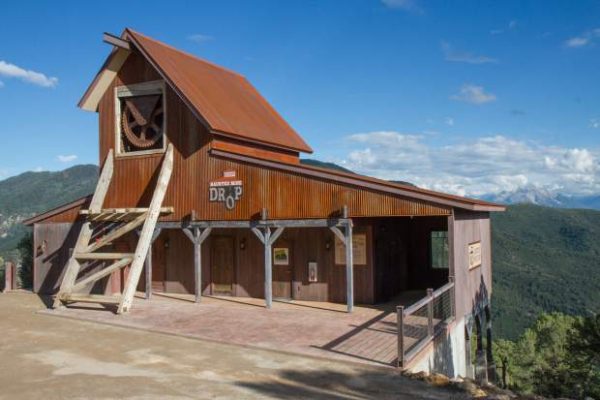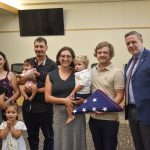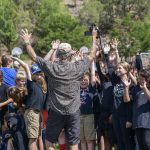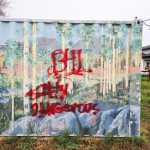Jury begins deliberation in Glenwood Caverns wrongful-death lawsuit

Chelsea Self/Post Independent archives
Jurors began deliberation on Friday afternoon following nearly three weeks of testimony surrounding the death of 6-year-old Wongel Estifanos.
Wongel, visiting with her family from Colorado Springs, died on Sept. 5, 2021, after not being securely strapped into the then named “Haunted Mine Drop,” a 110-foot freefall ride — later renamed the “Crystal Tower.”
A state investigation later determined the 6-year-old was sitting on top of her seatbelt and was not secured when the ride began. The park was fined $68,000 by the state following the accident.
In October 2021, the Estifanos family filed a wrongful death civil action lawsuit to the Denver County District Court, through the Dan Caplis Law Firm. They filed the lawsuit against the park’s parent company, Glenwood Caverns Holdings, seeking “economic and non economic” damages.
The lawsuit, filed just a month after Wongel’s death, alleges that operators failed to fasten restraints, ignored warning lights, and overrode the system to launch the ride while 6-year-old Wongel remained unbuckled.
During closing arguments, the prosecution alleged that Glenwood Caverns Holdings LLC made a deliberate effort to increase profits, violating safety laws and procedures in the process, and ultimately leading to the death of Wongel Estifanos.
The prosecution argued the company regularly ignored commonplace and required procedures like seat belt checks, nor did they run in-depth background or drug tests on ride operators.
“This is a case about a corporation making a premeditated, deliberate, cold, calculated decision to violate the law,” prosecuting attorney Dan Caplis said during closing arguments.
During the defense’s closing arguments, the lead defense attorney for Glenwood Caverns Holdings Jordan Lipp, stressed how important safety over profits is to Glenwood Caverns, using examples of the park implementing additional training, safety improvements, and independent audits beyond what is required by law.
Lipp continued to explain that the ride was designed and manufactured by a company called Soaring Eagle, and Glenwood Caverns was just following the training and procedures provided by the manufacturing company.
“The way Soaring Eagle designed the evacuation system wasn’t good enough. The Caverns have put in a large chunk of money aside to make that investment,” Lipp said during his closing arguments.
To end his final address to the jury, Lipp urged the jury to hold Soaring Eagle and the poor standard they set accountable — instead of the negligence of the individual workers and park — saying at least three quarters of the blame should be placed on Soaring Eagle.
During rebuttal, Caplis highlighted how the defense was dispensing blame, and explained how the jury currently holds a unique power that will allow them to hold corporations accountable. He described how a harsh punishment could both help right a wrong, and set a new precedent to deter similar practice throughout the industry.
The jury was still out for deliberation as of 4 p.m., Friday, Sept. 19.
The Post Independent will continue to update this story as it progresses.

Support Local Journalism

Support Local Journalism
Readers around Glenwood Springs and Garfield County make the Post Independent’s work possible. Your financial contribution supports our efforts to deliver quality, locally relevant journalism.
Now more than ever, your support is critical to help us keep our community informed about the evolving coronavirus pandemic and the impact it is having locally. Every contribution, however large or small, will make a difference.
Each donation will be used exclusively for the development and creation of increased news coverage.










